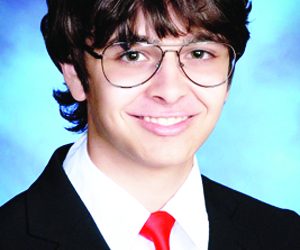This is not a new topic to this space. I have often commented on what I feel the HOPE Scholarship’s impact to our mainstream educational system will be. Last week I received an email that substantiates my dreaded belief. The email was the weekly newsletter from the West Virginia Center on Budget and Policy.
The West Virginia Center on Budget and Policy is a policy research organization that is nonpartisan, nonprofit, and statewide. The Center’s research and analysis is designed to support informed public dialogue and policy in West Virginia. The Center consults and collaborates with other organizations to ensure that its analyses are relevant and timely and strives to be a knowledgeable and respected source of credible information on public budget and fiscal issues for policymakers, advocates, media, and the public.
Here is what they had to say…
Hope Scholarship sends Taxpayer Dollars Out-of-State and to Unaccredited Schools.
West Virginia lawmakers passed the Hope Scholarship, at the time one of the broadest school voucher programs in the nation, in 2021. Voucher programs like the Hope Scholarship, referred to as Education Savings Accounts, divert taxpayer funding from the public education system to unaccountable, sometimes unaccredited, private schools and education service providers. With no public reporting required, there has been little information publicly available beyond the number of students approved in each of the first two years.
New data obtained through a public records
request raises serious concerns about the private
schools and providers receiving taxpayer funds after just one full year of the program in effect.
In the 2022-23 school year, 2,333 students received the Hope Scholarship, at a total estimated cost of just over $10 million. Nearly $6 million of that went to non-public schools, with the rest going to education service providers, which offer services ranging from tutoring and test prep to film classes and martial arts training. Of the nearly $6 million that went to nonpublic schools during the first year of the program, over $311,000 went to schools located outside West Virginia, flowing to Kentucky, Ohio, Maryland, Virginia, and Pennsylvania.
Additionally, over $1.7 million in state taxpayer funds went to unaccredited private schools. Per the West Virginia Department of Education (WVDE), in non-accredited schools, personnel are not required to have any type of professional licensure or credentials, and there are no student achievement benchmarks or requirements for graduation beyond “providing a curriculum which will enable students to become literate citizens and provid[ing] standardized testing scores at or above the fortieth percentile”.
Later this fall, the WVCBP will release a more in-depth report on the Hope Scholarship, highlighting its potential impacts on public education and the state budget.
The loss of that much money will have to have a very profound impact on public education. How can such a policy be good for our state as a whole?



